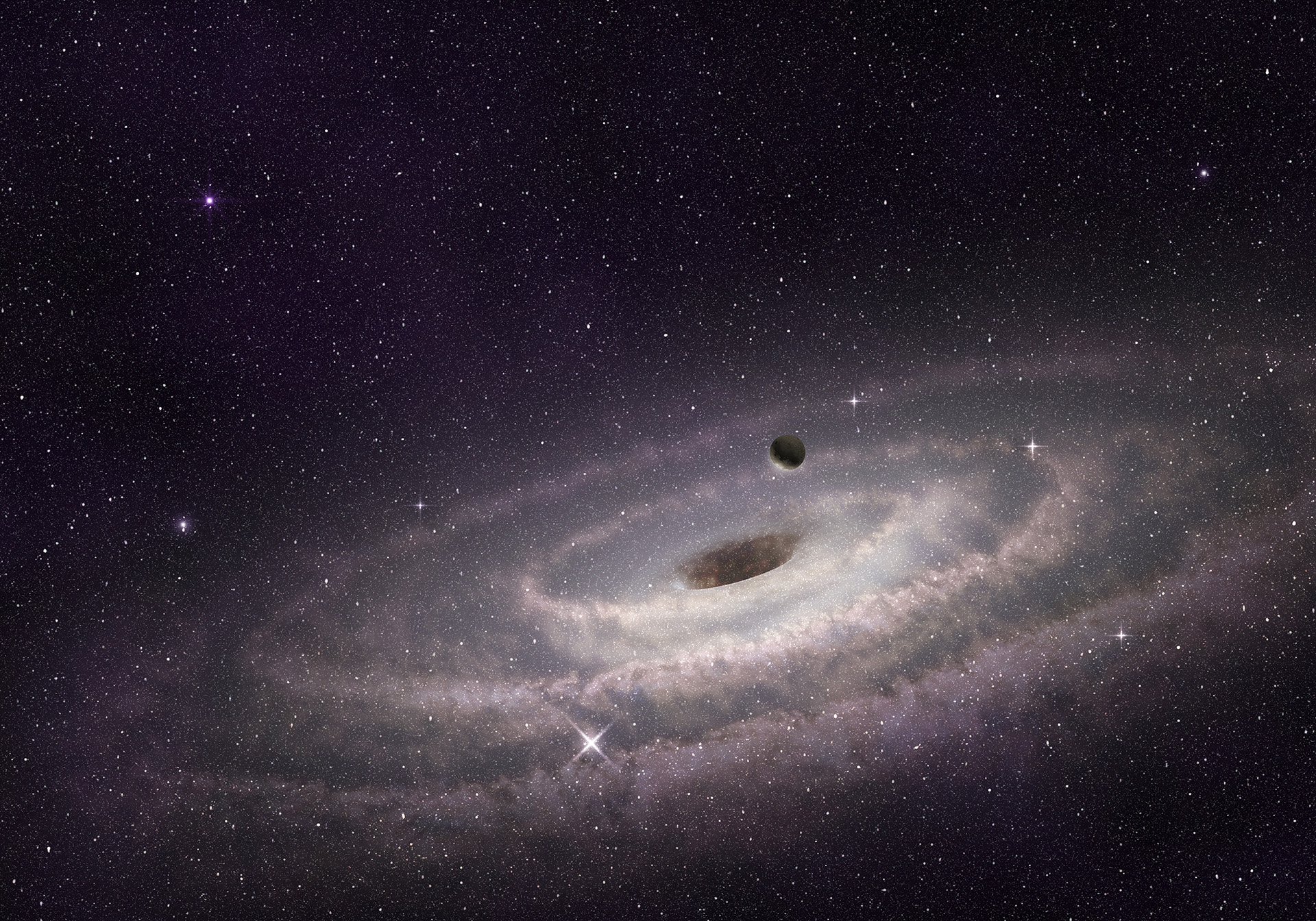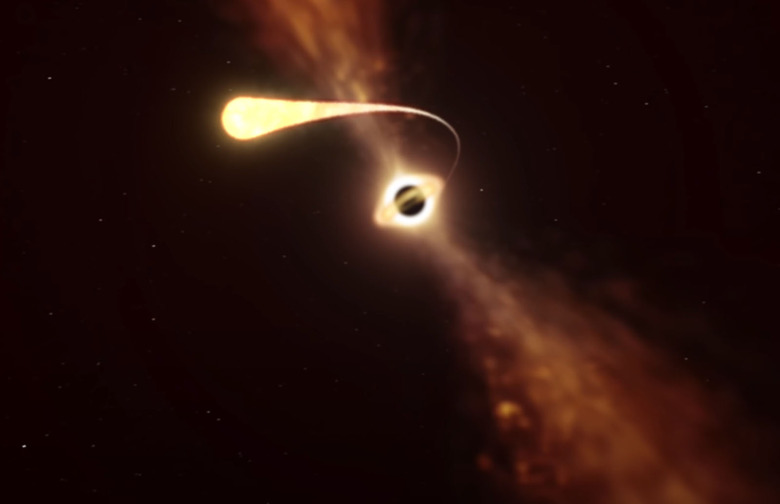Scientists Caught A Black Hole Burping Up A Shredded Star
Black holes actually burp up material when they eat stars, previous observations have found. But, what scientists didn't expect was to find a black hole that consumed a star three years before starting to burp up that material so long afterward.
The black hole in question is located around 665 million light-years from Earth. In October 2018, that black hole ripped a small star to shreds when it wandered too close to the black hole's strong gravitational pull.
Black holes often consume stars when astronomers look at the night sky. What the scientists didn't expect, though, is that the black hole would burp up the star three years later.
Yvette Cendes, a research associate with the Center for Astrophysics at Harvard & Smithsonian, said that the event caught them completely by surprise. The black hole, which hasn't consumed anything since its last meal three years prior, suddenly began to light up the night sky again. What caused the black hole to burp up its last meal so long after is a mystery, but it has raised some intriguing questions.

For one, a group of researchers observing the event say that the event changes everything we know about how black holes consume stars. The group published a paper with their findings in The Astrophysical Journal earlier this year. Others involved in observing the black hole back in 2018 say that it was unremarkable for the most part. The black hole faded from their minds when the event did.
Now, though, it is back in everyone's minds as it lights up the night sky again, releasing material shredded from the small star it consumed in 2018. Normally these kinds of "black hole burps" occur quickly after the consumption of the star.
But this time it's like the black hole just suddenly began burping that material up years after it ate the star.
Determining the cause of these burps could unlock more information and understanding about black holes and how they work. Despite capturing images of the Milky Way's black hole, and discovering roaming rogue black holes, there's still a ton we don't properly understand about these massive stellar objects.
Perhaps this research could be a chance to dig deeper and learn more about the eating habits that black holes exhibit and why they regurgitate the material they consume from stars that come too close to them.
Looking for more space news? Skywatchers can peer into the sky later this month to view the annual Orionid meteor shower. Plus, scientists now say that climate change on Mars could have been caused by ancient microbes now burrowed deep below the surface.
